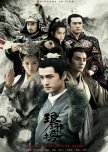
This is like a fine dining experience - to be savored and remembered. It deserves an 11/10.
Nirvana in Fire is an exceptional drama by any and all standards - nothing else I have watched comes even close to surpassing it. It truly checks all of the boxes in terms of a complex plot, an incredibly talented cast, excellent screenplay, well executed action scenes and overall movie-like visual impact and production quality.This is the story of Lin Shu's single minded quest for justice and reform. His father, a powerful general in command of the 70,000 strong Chiyan army is framed as a traitor while away defending the Liang state. Victorious but battle worn, he is slaughtered along with his entire army before they have a chance to return to the capital. Young Lin Shu barely survives and re-emerges 12 years later as Mei Changsu, the mysterious leader of the powerful pugilist Jiangzuo Alliance. His appearance is completely altered and he is a sickly, shadow of the vigorous young warrior he used to be. He returns to the capital amidst a power struggle between the crown prince and his brother Prince Yu as the Divine Talent, a brilliant strategist regarded as an emperor maker. He plays them against each other and is on surface allied with Prince Yu while he surreptitiously advances the out of favor Prince Jing. The complexity in the plot arises in the brilliant and occasionally cruel strategies he employs to uncover the full extent of the conspiracy and all those complicit in his family's murder as well as to advance Prince Jing's position. This is not a story about revenge, it is about justice. It is also about reform as justice is worthless without reform. Making abiding changes to the court and the system that would be overseen by a just and moral ruler was an equally important outcome to Lin Shu/Mei Changsu. To achieve his mission, he had to do many things he considered despicable. Cleaning out the corruption in the court was the only thing he could do to make the senseless massacre of his family and comrades in arms mean something.
This is an impossible show to binge watch - I can at best get through two episodes in one sitting. We learn from the get go that Lin Shu is living on borrowed time. That imbues the drama with an omnipresent sense of sorrow and inevitability that grows as it steadily progresses towards the end. Whenever the mood gets unbearably heavy, there are welcome moments of brilliantly timed comic relief. The first episode is probably the most difficult to follow as most of the key characters are introduced all at once .Thankfully there are many excellent character guides online that are super helpful in the beginning. There are no unnecessary characters in this show; each one was brilliantly cast and has an important role in the unfolding storyline.
The role of Lin Shu/Mei Changsu is a complex one and not at all easy to play. This was without a doubt Hu Ge's defining role and he just killed it. Time and again he was able to subtly convey a multitude of intense emotions behind a superficially stoic expression. As Mei Changsu the strategist, he was brilliant, ruthless, calculating, Machiavelli and breathtakingly cruel when necessary while battling his self-loathing for the person he was forced to become. He is filled with longing, regret and fear of discovery as he re-encounters his former love, friends and relatives under this new identity. He masterfully portrays a callous indifference that masks unbearable hurt as his actions and morals are misunderstood by his best loved friend. As they inevitably begin to recognize his old mannerisms and think the unthinkable, he cannot help but tease them with the truth before skillfully evading their suspicions. The chemistry between Lin Shu/Mei Changsu and the rest of the cast and in particular Prince Jing (Wang Kai) is mesmerizing. Twelve years later Prince Jing still misses Lin Shu, his boyhood friend and cousin and was never quite convinced the Lin family could be guilty of treason. Despite his contempt for Mei Changsu's lack of moral scruple, the principled Prince Jing's soul knows him and he is eventually drawn into a strong and touching bromance with him . Equally moving were the rare smiles, flashes of humor and fatherly affection that emerges when Lin Shu/Mei Changsu teases Fei Liu, his lethally skilled and fiercely loyal boy protector. Despite his crushing physical weakness, he desperately lies to shield his loved ones from the extent of his suffering and true condition. I found myself grieving for not only the lost friendships and love affair that could have been but for the Lin Shu that Mei Changsu can never become again.
The character development in this drama is so sophisticated and multi-layered that even the worst villains of the piece are to evoke a sense of pity for their human failings and have some redeeming aspects. The story builds towards an epic climax that sees Lin Shu/Mei Changsu confront the person ultimately responsible for this terrible and unforgiveable betrayal. Both actors in this final showdown were phenomenal but I think the tyrant's rant from rage,to hubris, to denial, to defeat , to defiance and then finally to almost but not quite remorse truly blew me away. It is in this encounter that Lin Shu delivers his most excoriating, most tragic and and most damning indictment -"If you knew your son you would never believe he could betray you. If your son knew you, he would not have refused to believe you betrayed him." The script writing is powerful and we are treated to many emotionallly loaded lines but for me, this one was the one that summed up the root of the tragedy and made me weep for both of them. But Lin Shu/Mei Changsu was beyond tears. It is this ability to convey bottomless sorrow without shedding a tear that made this Hu Ge's unparalleled performance.
{Warning - Spoiler ahead]
I love it that this show pretty much ends after the climatic peak with most of the loose ends tied up well ahead. Even though we know from the very beginning that Lin Shu/Mei Changsu dies, it still broke my heart. Nonetheless, the drama comes to a very fitting and satisfying end. While this was an enthralling, immersive journey from start to finish, I think I need to take a break with something less intense. I suspect this will remain the very best drama I have ever seen for a long time although I still love Ten Miles of Peach Blossoms best.
Was this review helpful to you?
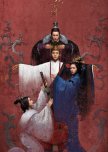
Sleeping with the enemy.
This drama weaves some of the most prominent historical figures of China's Three Kingdoms period into a fabulous and exciting tale of intrigue, adventure, and romance reminiscent of a Dumas plot. This is a highly fictionalized yet disarmingly convincing exploration of the motives and relationships of the key figures of the day that manages to stay broadly true to history.The last Han emperor has a secret that could shake the foundations of the empire and shatter his tenuous hold on power. Aided by a small intimate circle that includes the empress, his boyhood friend Sima Yi and a dwindling number of old Han ministers, he embarks on a desperate quest to escape the clutches of Cao Cao and restore the glory and power of the Han empire. But the cruel strategies and sacrifices needed are at odds with his benevolent nature and inclination to show mercy to his enemies. Ma Tianyu impressively pulls off a complex portrayal of this seemingly weak and powerless emperor who frustratingly sticks to his guns against all odds to ultimately succeed in winning the hearts and minds of his enemies with his enlightenment and magnanimity. It is very clear that the emperor and the notorious Cao Cao have very similar world visions and goals but their methods are extreme opposites - one rules by fear and sheer brute force while the other kills you with his kindness. Both are pragmatic and when the rubber meets the road, have little choice but to sleep with the enemy in order to achieve the outcomes they are after. We get to decide for ourselves who was more effective, who really won their epic struggle for power and whether it was worth it.
There are no real villains in this drama - even the emperor's enemies are portrayed in a very balanced manner though it is fair to say that the so called villains out-acted the heroes. Guo Jia is my favorite character in the drama - I often found myself rooting for him and oddly moved by his and Cao Cao's loyalty and affection for each other. And Tse Kwanho's Cao Cao must be by far the best Cao Cao I have ever seen - so cunning, powerful and menacing I was actually scared of him. Some of the most gripping and intense scenes in this drama are when Cao Cao and the emperor go toe to toe. My one big criticism of this drama is Han Dongjun's Sima Yi is shallow, boastful and unemphatic. For a highly rated actor to miss the mark on such a key character is just not acceptable. While some of the bromance moments with the emperor are decent, most of the time he is not in character and does not convincingly pull off the legendary strategist. Cao Pi is also extremely well acted but overshadowed by all the other outstanding performances. There is quite a bit of sizzling romance this drama, notably that of the emperor and empress as well as Guo Jia's but Sima Yi's was just kind of flat.
This drama is full of suspenseful moments and action as danger lurks around every corner. The second arc however is a bit draggy and requires some suspension of disbelief but that is also where the awesome Guo Jia emerges so don't abandon it there.
I will stop here and keep this short as it would be a crying shame to spoil this one. I highly recommend this very enjoyable and under appreciated drama that I would rate higher if not for Sima Yi
Was this review helpful to you?

Sizzles while it fizzles.
A massive fire devastates Qingzhou on the night Dayan's Weibei army triumphantly reclaims the city from Xiyan. Suspected of razing the city to the ground, the Weibei army is disbanded in shame while their leader, Prince Murong Jinghe is sent to his fief. To Mei Lin whose world collapsed that day, that was not justice; far from it! Rising from the flames, she transforms herself into an elite assassin for the Shadow Works. Her first assignment is to infiltrate Dayan as a Xiyan beauty bride to assassinate the "Butcher General" Murong Jinghe. She must complete her mission with all due haste to obtain the antidote to the deadly toxin the mysterious master of the Shadow Works uses to control her.The stage is set and Murong Jinghe's entrance made my my jaw drop and my mouth go dry! Sinister and unspeakably handsome, insolent, casually malevolent and utterly unforgettable. When his cold cynical gaze collides with Mei Lin's wild, ferocious one, the screen explodes into flames. I was seated for what promised to be the ultimate revenge drama, a dark, passionate and twisted enemies to lovers story. I can't remember the last time a drama hooked me so completely from the get go. So I hushed my inner voice that protested the fact that they seemed to reveal the entire plot by episode 3. All too soon after, their thrilling dark, combative chemistry and one-upwomanship tit-for-tat turned into a moving unbreakable alliance that made them both so vulnerable I feared for them. Even though the plot falls apart around them, I enjoyed every moment of the torrid, ardent, connection between Jinghe and Mei Lin that was so effortlessly conveyed by Liu Xueyi and Wu Jinyan. They captivated me with their intense screen presence and the way their chemistry still sizzles while it fizzles through every silly, illogical, emotionally harrowing arc the script made them jump through.
This drama was by a wide margin, my biggest disappointment this year. As someone who read and more or less forgot the novel 春花厌 or Spring Flower Disgusted, I should have known that you can't make a symphony out of one note. There simply was not enough plot to do justice to the exciting concept and delicious character designs. Unfortunately Murong Jinghe, who was a ruthless scumbag for most of the novel, got whitewashed so early in the drama I thought he was body swapped into his adorable little white dog. Nonetheless, I enjoyed watching the enemies become allies and then lovers. Exceptional visuals and the couple's chemistry got me through the boring digression into the romantic filler arc that saw both leads regress into lovey dovey country bumpkins. The all-important revenge arc however disappointed me deeply as Mei Lin was unforgivably short changed of her vengeance so we never really get to see her slay as an assassin nonpareil. The drama should have ended at that arc instead of soldiering on for another mind numbingly boring eight episodes. The entire final Xiyan arc was ridiculously melodramatic and Zigu's love story was yet another filler arc, one that was in poor taste. Jinghe turns into a noble idiot who entrusts a well-meaning but incompetent young idiot with a task that was way over his pay grade. After all the blood and tears, I almost laughed out loud that they were ultimately foiled by a flower chomping, superstitious old fool. The drama comes to a full circle with the novel in that no one gets an ending that they deserve.
I won't lie - even Liu Xueyi and Wu Jinyan's phenomenal acting and charisma could not save this drama, it just made it barely tolerable. None of the other characters are interesting or well written enough to make me invested in their stories. Baron Chen's Murong Xuanlie is quite well portrayed but is too archetypal and his story and motivations quickly becomes repetitive and boring. Luo Mei's moral code is too mismatched with that of Xuanlie that as a couple, they are completely implausible. And Yue Qin was written to be such a lame character that there really was no room for Bi Wenjun to shine. What promised to be a dark and riveting story about love, revenge and justice turned out to be a sober warning about the ravages of war. Everyone from the common man to the king in the high castle is not safe and lives regretfully ever after.
This was a story that was written by four different writers and it shows. I can easily rate the first 3 episodes of this drama 8.5-9.0. After that, it barely holds an 8.0 for me and after episode 24, it is barely a 6.0. I think a fair rating overall is 7.0 but I throw in 0.5 more for Liu Xueyi and Wu Jinyan's acting to call it a 7.5. Watch at your own risk and use the FF button liberally.
Was this review helpful to you?

Gangsta's Paradise
I bounced off walls with joy and excitement when I came across this movie. It has been too long since we have seen a hard core Hong Kong style triad martial arts movie like this. Not to mention the cast - Louis Koo, Sammo Hung, Raymond Lam; literally a Who's Who of veteran Hong Kong action super stars. Adapted from Andy Seto's manhua "City of Darkness," this movie is set in the 1980s in the Kowloon Walled City, or Hak Nam/黑暗 as it was known to locals. Dismantled in 1993, this was once the most crowded place on earth, packing 35,000 people within 6.4 acres. This infamous den of iniquity was a gangsta's paradise; a dystopian, lawless enclave of mostly refugees where crime proliferated and triads kept the peace with their own brand of street justice. The replica of the Walled City is viscerally authentic down to the chaotic claustrophobia of structure piled precariously upon structure and the stench of overflowing humanity permeating the dank, narrow corridors.This fast-paced action-packed movie that pays tribute to the golden age of Hong Kong cinema exploits tried and true themes of loyalty, brotherhood and vigilante justice. Chan Lok-Kwun (Raymond Lam) is a mainland refugee that sneaks into HK in the 1980s. He runs afoul of triad boss Mr Big (Sammo Hung) and in a thrilling chase, jumps from the frying pan into the fire of the Walled City. Through blood, sweat and bone-crunching fights, he earns the grudging respect of Typhoon and his underlings, who keep the peace within the Walled City. The narrative rushes through not that well fleshed out subplots involving past grudges and shady business deals but who cares? They are simply excuses to stage one innovative, physics defying action scene after another featuring fighters dressed to kill at 1980s comic-con. While Typhoon and his rival Mr Big anchor the narrative, the younger crew really hold their own up against the intimidating cast. I laughed out loud at their moments of dark humor and brash camaraderie.
One of this movie's top highlights is the the gritty, awe-inspiring recreation of the dystopian underworld within the Walled City; a place that spawned countless video games and works of fiction. The action scenes pay tribute to the manhua with outlandish cartoon-like combatants and the death proof brawls featuring wildly exaggerated superpowers. The fight scenes got more fantastical as the movie progresses and climaxes in a crazy, all-out extended take down of an almost invincible villain. I was on the edge of my seat with excitement and anxiety the entire time; thinking more than once that the bad guy was gonna win. Nonetheless I felt the best fights were early on, where despite the astounding athleticism, they were still grounded in some semblance of reality. I had my heart in my mouth watching Chan Lok-Kwun's opening shattered glass skirmish, the way he fights his way out of tight spaces on the bus and his parkour like first foray into the Walled City. This is how real martial arts action scenes should be choreographed and filmed. Later on, while still inventive and gripping, the action strays a bit too far into the realm of the fantastical.
This movie is a must watch and not just for old times' sake; preferably in Cantonese and on the big screen. It shows that Hong Kong cinema is still alive and well and stands the test of time. I am only rating this an 8.0/10.0 because the plot could have been better but the overall entertainment value vastly exceeds this rating.
Was this review helpful to you?
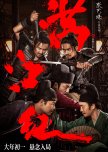
We will feast on the enemies flesh and drink their blood.
Full River Red is an ancient dark comedy whodunit set in Song dynasty. It is Zhang Yimou's most commercially successful movie to date That is no reason to dislike it. For Zhang Yimou never fails to stun with the sheer brilliance of his cinematic vision and his ability to provoke and capture profound human emotions. It is his narrative style that tends to be weighed down by illogical, at times exaggerated plot points and inconsistent characterisations that rarely does justice to his incisive camera language. While there are traces of these habits, this twisty, stab-happy mystery is the tightest plot I have seen from him in years.As much as the critical political and societal undertones of Zhang's earlier works discomfited the Chinese government, his recent works are now accused of pandering to government propaganda. Every Western film critic has remarked upon the movie's jingoist note with a sense of unease. The Chinese title Mǎnjiānghóng/满江红 or crimson river sets the tone from the start. This eponymous poem attributed to patriot Yue Fei is ubiquitous; it spoke to me even before I could understand its prose. People's hero Yue Fei was a revered Song general who relentlessly defended his homeland against the invading Jurchens. He was betrayed by the enemy within, a jianchen/奸臣 treacherous official Qin Hui who goes on to be prime minister. What happened to Yue Fei is one of history's terrible injustices, one that still resonates eight hundred years later. The common people appeased their deep sense of sorrow and thirst for justice by deep frying dough sticks in oil yóu zhá guǐ/油炸鬼 or deep fried guǐ/ 鬼 or devil, which in Cantonese is a homonym for Hui/Kuai/桧 in Qin Hui. When I was a kid, my dad used to rant about the dastardly Qin Hui every time we bit into his favorite crispy fried dough sticks.
The movie opens four years after the unjust death of Yue Fei. A Jin envoy is murdered on the eve of his meeting with Prime Minister Qin Hui. The important missive he carried is missing. The unfortunate night patrol is put under the knife as heads must roll for this diplomatic disaster. Desperate to buy time, corporal Zhang Da convinces Deputy Commander Sun Jun that he may be of value in solving the case. They make some small progress and are given two hours by Qin Hui himself to recover the missing missive. Thus begins a high-strung, knives drawn chase through the serpentine military compound as they question unreliable witnesses and fend off duplicitous officials vying to get their nefarious hands on the missing letter.
In a departure from Zhang Yimou's signature, bombastic color drenched cinematic style, the palette is muted, somber and haunting in its clean lines and simple, gorgeous grey toned soberness. There is a sense of profound gravitas that overhangs the thrill and suspense of unraveling the conspiracy at hand. The pacing is start stop as the narrative slows down enough to allow important plot points to soak in only to pick up again to the tune of a clattering amalgamation of hip-hop and Chinese folk music as they race through the complex to pin down the next clue. The body-count piles up as suspects are dispatched suddenly and brutally with dark humor that is as sharp as the knife play. I won't spoil the ending other than to say it is wildly, enormously satisfying and yet it still respects history.
In terms of the cast, it really doesn't get better than this. I was surprised by Shen Teng and Jackson Yi's chemistry and how humorously they convey just the right mix of conflict, mistrust and empathy. I must applaud both Lei Jiayin and Zhang Yi for taking on roles outside their comfort zone. I could see that Lei Jiayin absolutely relished playing the vilest most hated villain in Chinese history. While far from the monster of my childhood imagination, his Qin Hui is still a wicked, cunning creature but also realistic, mortal and even almost human. To me, the memorable highlight of the drama was to watch one of China's very best actors recite the titular poem. Yes it is a very patriotic poem but its message is universal - everyone loves their country for better or worse and will defend it with every ounce of their being. This is the one time that Zhang Yimou's famous digressions is actually fitting and gives a deeper meaning to the story. The movie's big message is also universal; that there are some truths that must be revealed at whatever cost.
This movie hits all the right buttons for me - a dark comedy conspiracy thriller with a touch of wild history around characters that set my imagination and sense of right and wrong afire as a child. It smacks of Zhang Yimou's hallmark provocative brilliance with small flaws and is one of the rare times I enjoyed his storytelling almost as much as his visual composition style. This is an 8.5/10.0 for me.
Full River Red (follows the toned down movie translation):
My last words reflect my thoughts
Full river red
My hair bristles with anger
I lean against the rail
The rain has stopped
Looking at the sky
I let out a cry
Emotions well up in my chest
My achievements in the past are merely dust
I fought bravely with the clouds and the moon
Don't wait
When your hair turns grey you can only regret
The national shame has not been avenged
When can my hatred be wiped away
Riding war chariots we will tumble the Helan Mountains
We will feast on the enemies flesh and drink their blood
When we recover our lost lands
We will satisfy people's demands
Was this review helpful to you?

Soul searching.
This is an absorbing sci-fi suspense thriller built around themes relating to the immortality of the soul and its ability to reincarnate after death. The city's top prosecutor Liang Wen Chao (Chang Chen) takes on a high profile, inexplicable and grisly murder of a terminally ill tycoon. As Wen Chao examines the key suspects - the son, the young wife, the deceased ex-wife and the business partner, cutting edge technology and superstitious rituals intersect to further muddy waters already tainted by greed, love, hate, misplaced loyalty, revenge and man's futile quest for immortality.Without spoiling it, I think the whodunit aspect of it is quite well done from the way the suspicion shifts from one suspect to another until the impossible is eliminated down to what remains as the improbable truth. I did not completely buy into some of the motives of the key suspects and I was irritated by the over-acted supernatural twist that failed to deliver the chiller thriller effect it was striving for. As for the howdunit aspect I will just say it was much more fiction than science but this is the case with most sci-fi thrillers. Since it does deliver an interesting twist, it is very forgivable so just go along with it and suspend disbelief.
This movie's strongest selling point is Chang Chen and Janine Chang's performance as the core investigative team and lead couple. The kind of stoic, desperate soldiering on Chang Chen does as a terminally ill man desperate to do his best for A Bao and their unborn child with what little time he has left is heartbreaking and moving. This is really Chang Chen's best role in terms of how he conveys such deep emotions and soul searching with so few words and how his journey gives him unique insight into the victim. Beyond his incredible weight loss, I was also riveted by how effectively Chang Chen conveyed the impression of a man calling upon the last legs of his energy, whose mind is very much alive as his body fails. This is not a love story but because of amazing acting by the lead couple, I can see the depth and complexity of their unspoken emotions, how well they just fit together, understand and sacrifice for each other. This is the part of the movie that will stay with me.
Was this review helpful to you?

No place like home.
Based on an award winning novel, Northward is a heartwarming and realistic coming of age and cultural heritage story about a number of Jiangnan youths who grew up along the Grand Canal. The story opens with the lively and carefree young kids from Flower Street cavorting mischievously in the canal under the indulgent, watchful eyes of their community. One day, Granny Ma's exotic granddaughter Siyi, a solemn and lonely lost child, comes to live with her. The neighbourhood embraces her warmly and the kids rally around her protectively. The drama captures the communal spirit of the early 2000s, where the hard working families of Flower Street are by no means rich but by pooling their resources, they share each others burdens and navigate life's ups and downs together. All the child actors were superb and well cast. They made me invested in all of the characters from the get go; from the ringleader Wanghe, the steadfast Haikuo, the studious Chen Rui, the resentful Xingzhi and Huazi the tomboy with a heart of gold.Into their teen years, the realities of life and changing times intrude upon the idyllic times along the canal. The advent of superhighways and high speed trains make it more difficult for the citizens along the canal to make a living from the waterway. As their families struggle to make ends meet, the young friends vow to head north to Beijing for college with big, life changing dreams. Time moves too slowly for the young friends as they grapple with their parents’ financial and personal struggles—their strengths, weaknesses, and all-too-human imperfections. Life's challenges overwhelm the burgeoning attraction some of them start to feel for each other. In such a close-knit community, everyone is so closely tangled into everyone's lives that there are no real secrets between them. There is as much laughter as there are tears to go around as all too soon some of them discover that actions have consequences, some that are irreversible. This was by far the best arc as veteran actors including Hu Jun and Li Naiwen anchor immersive performances from the younger ensemble cast to authentically bring to life the joys, sufferings, regrets, and human failings of three generations of Flower Street.
The narrative loses its early charm in the later Beijing arcs. The business plots are realistically written and reflect the intense competition and challenges faced by the food delivery and courier services in China. In pursuit of their dreams, the young friends discover there is no place like home. The denizens of the big city are harsh, duplicitous and calculating. They discover triumphs are hard won after many sacrifices, setbacks and betrayals and they can only have each others backs. Conflicts arise as they search for their own bottom lines in the ruthless battle for business survival. What I didn't like is that they remained such a clique that none of them really let anyone else into their lives. Even Haikuo never really tried to include his girlfriend in their closed circle. I'd have liked to see Wanghe have a real love rival and Huazi not be so absolute and single minded in her feelings. I also wish Huazi had made her health choices for herself and not because of anyone else. But my biggest criticism of the character stories has to do with how Siyi simply ghosted everyone. That was profoundly selfish and cruel in a way that destroyed her character for me. I was also a bit disappointed that the unresolved issues between Siyi and Wanghe and to some extent even Chen Rui were just swept under the rug. The ending was a little bit too good to be true but I loved all the characters so much that its not a real gripe.
All of the young actors deliver heartfelt performances with Li Wanda and Zhai Zilu best capturing that sense of adolescent turmoil and displacement. Even though they were still credible, both Ou Hao and Bai Lu struggled more with the teen years. Past thirty, it is incredibly difficult for actors to recapture that angsty uncertainty and unconscious radiance of youth. While the Beijing storyline falters in narrative cohesion, both Ou Hao and Bai Lu grow into their roles well as struggling young entrepreneurs so well that I understand the casting decision. I enjoyed watching Bai Lu take on this kind of tomboy role even though the braces and short hair did not make her look any less gorgeous. By design, Siyi was the most intriguing character in the story so I was disappointed by how Li Wanda's character got sidelined. All things considered a very enjoyable and moving slice of life story that I rate 8/10. The first half was notably stronger, tracking closer to an 8.5.
Was this review helpful to you?

Junk food with no calories: highly addictive and binge-worthy.
This is THE drama that revived my love for Chinese costume drama. I was hopelessly addicted and inconsolable after it ended. I hungered for the next Ten Miles of Peach Blossoms and was crushed and then frustrated when I realized there is nothing else like it. I still have to restrain myself from binge re-watching my favorite parts. My conscience always struggles with inflicting this on someone else so be warned: TMOPB will connect with you and compel you to fall in love with it but it will also ruin everything else you for a long time.At its heart, this drama very simply an intense, fantasy love fairy tale that spans three lives and three worlds. The plot is not complex, the CGI and some of the fight scenes are not the best and there are small holes and loose threads but nothing diminishes the utterly spell-blinding love story between Bai Qian (Yang Mi) and Ye Hua (Mark Chao).
In the first part of the story, Bai Qian is disguised as a boy Si Yin, the best loved disciple of Mo Yuan (also Mark Chao), the God of War. The young Bai Qian/Si Yin is a carefree, mischievous and indifferent student. A terrible betrayal by her first love that leads to a devastating war and the sacrifice of her beloved sifu Mo Yuan’s soul leaves Si Yin inconsolable with grief and remorse. If Bai Qian occasionally comes across as dislike-able, it is because Yang Mi did not successfully convey how deeply and utterly wounded Si Yin/Bai Qian was by these events. This transformed her into an aloof, cynical and outwardly cold goddess who closely guards her innately warm and loyal heart.
As for the Ye Hua character, part of his magic is there is no such thing as a Ye Hua - he is the brilliant, invincible and handsome Crown Prince of the powerful Celestial Tribe. He is also a great cook, a wonderful father and he loves only once and unconditionally. But underneath that too good to be true surface, he has his own glaring flaws. His first hopeless love is Susu, a lonely, kind heart-ed, docile mortal woman he meets on a chance encounter. It is an unequal relationship that was doomed to end in tears. As a result of his inexperience and hubris, he makes many miscalculations and ultimately betrays her in a way that tragically ends their relationship. He mourns her and waits for her return for hundreds of years and against all logic and odds. When he discovers Susu and Bai Qian are one and the same, he is elated and goes to extreme lengths to crack the ice around her heart and win her love and forgiveness. But Bai Qian is a much older and complicated woman who is initially dismissive of his puppy love. She is a high goddess and a queen and thus more than his equal. While he was thrilled by this spicier version of Susu, he finds to his frustration and fear that she has a past and her heart is not as easily won.
Mark Chao’s Ye Hua will forever be the defining Ye Hua. It doesn’t hurt that this dude has the best eye ogling motion and is capable of the most unbelievable micro facial expressions. He is not afraid to look ugly when he is terrified or devastated with grief. As Susu’s Ye Hua, he is the austere young prince who discovers love and happiness for the first time. As Bai Qian’s Ye Hua he is darker, more passionate, more aggressive and much wiser. Chao's Ye Hua literally gets better looking as the drama advances. Its an illusion that arises as he compels you with the many faces of Ye Hua; the serious and dutiful prince, the valiant warrior, the besotted bridegroom,the grieving widower, the protective father, the frustrated lover... He is equally persuasive as the stoic Mo Yuan who silently mourns the love he lost while he was recovering from saving the world.
Yang Mi and Mark Chao together are a heady, addictive combination. They are both so gorgeous that it is just a gigantic eye candy feast. This drama unabashedly spams you with steamy scenes of the two of them kissing and rolling around in bed. I suspect Mark Chao was cast as Ye Hua based solely on how shockingly good he looks lying down and his terrific acting skills were just an accidental happy bonus. Their chemistry gets noticeably more intense and you to fall in love with them falling in love. In lighter moments, the dialogue is both hilarious and touching. As a couple they subtly mock many cliche costume drama stereotypes – Ye Hua is the cook, he is Mr Mom, he cross dresses and he turns on the waterworks more easily. She is a much older woman who can drink him under the table, proposes to him and likes to lecture him. While the drama is sloppy elsewhere, Ye Hua and Bai Qian’s scenes are shot with meticulous, loving attention to detail. In each life, they hold each other the same but slightly different way when they sleep, she combs his hair the same but slightly less loving way, and when Bai Qian hugs Ye Hua the way Susu hugged him you just KNOW he has almost wormed his way back into her heart.
All of the emotionally moving scenes are accompanied by one of the four haunting love songs from the OST. The production team had a cheeky sense of humor when it came to Ye Hua’s costumes - they sneaked in a number of really sidesplitting outfits. In the memorable episode when he meets Bai Qian for the first time, he looks like Big Bird in a black feather outfit that highlights his beaky side profile in not the best way. By then, I was so smitten that the thinking part of my brain barely processes this. And then there is the cross dressing.… In most of the love scenes, Ye Hua borrowed my pajamas and copied my hairstyle. I can't explain how I am not bothered that he had the audacity to look so delicious in my nightgown. At the end he even pulls off this black with pink peach blossom flower print dress that I have aptly named Su Jin’s Revenge. None of it matters - he can speak the cheesiest lines, cry, cross dress and still come across as this crazily sexy, hot man beast. Love is blind indeed.
The strong cast of supporting characters brings this story to life - the uncle confidante, the brother and his "friend", the deranged evil concubine and the usual love rivals. There is also Dijun (Vengo Gao) and Feng Jiu's (Dilraba Dilmurat) love story which has charming and heartbreaking moments but the main couple is a tough act to follow.
I will leave to your own imagination the many hidden undertones to this show - from the somewhat taboo to the very naughty. There are many better, more well-rounded shows with more substantive and complex plots out there. This one still wins on the strength of its simple, brilliantly accomplished mission: it forces you to relive all of the joy, passion and pain of an intense love. Like junk food, it appeals to all of your most basic instincts and can result in binge-ing. Don’t ask why - just enjoy it. Over and over and over again if you must.
There are about 60 episodes of very funny bloopers on Youtube on the Croton Mega Hit channel but most of them are not translated.
Footnote: Forget the rubbish Netflix title Eternal Love, this drama is Ten Miles of Peach Blossoms.
Was this review helpful to you?
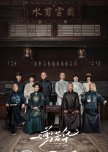
A cut above.
This is a wonderfully produced drama that deserves a lot more attention. It is a riveting tale of sibling rivalry that spans a time of rapid change and turbulence in modern Chinese history. Jiang Mosheng and Lu Yuanzhi are both adopted and apprenticed by Master Su Jingan of Sancai (Triple Cut) House, couturier of the Qing Imperial Court. Sancai House routinely outshines other rival houses in the workmanship, symbolism and design of the intricate ornamentation of the Dowager Empress' court robes, allegedly due to their seamless stitch, a tradecraft that is passed down from one generation to another. Master Su's most bitter rival is his former fellow apprentice, Master Bai Henian of Sihe House.Jiang Mosheng is the older, steady, responsible brother and heir apparent, whose great talent is meaningfully enhanced by his passion and dedication. Lu Yuanzhi is the hot headed, audacious and visionary brother; a rare talent whose brilliance is nothing short of genius. His recklessness however lands him in serious trouble. To save him, Mosheng cuts ties with Sancai House, defects to Sihe House and accepts Master Bai as his foster father. This sets the brothers down a complicated path of reluctant rivalry, conflicting loyalties, mutual friendships, convenient alliances, mistrust, betrayal and forgiveness. The most prominent feature of this drama is the Abel and Cain relationship between the brothers and it is well written, consistent and riveting. Both of them are flawed characters and neither is completely blameless for how things play out between them. Although Yuanzhi learns to rein in his recklessness and temper as he matures, it still manages to get the better of him. His culpability over Mosheng's sacrifice constantly lingers in the air between them. Even though he can be such an ass, I have to sympathise with Mosheng's battle with his own worst instincts in the shadow of someone who is perpetually a cut above. Both Zhang Haowei and Hong Yao delivered excellent, empathetic performances, alternately frustrating, enraging and beguiling me at all the right moments.
How the design of the cheongsam or qipao evolves to reflect the changing attitudes of times is the main, fascinating centrepiece of the drama. While not in the same league as the more modern and sophisticated qipaos of Wong Kar Wai's iconic In The Mood for Love, all of the outfits from the Qing court robes to the Western flapper dresses are simply gorgeous and I truly enjoyed the mini history of Chinese costume. How the female characters are dressed is also symbolic of who they are - Yaoyao is a remnant of the past at sharp contrast with Lijun, the ultimate, progressive modern woman. Kang Ning sits in the middle - she embraces change in a way that marries it with tradition; and thus she is truly Yuanzhi's muse. True to character, both Kang Ning and Lijun have a very refreshing attitude towards relationships and love that I truly enjoy and they fight to write their own stories even when events conspire against them. The only character I didn't like is Yaoyao who is your typical c-drama archetype but she is written that way as a foil for the other two. There are enough dimensional, grey and consequential characters in this drama that I am very satisfied with the character aspects of it. Most of these key roles are performed by veteran actors whose acting often surpasses the quality of the dialogue. I laughed my head off at the dynamics between Lijun, Feiyu and her father.
This is largely a character driven drama where the main characters have to cope with the changing times as they transition from the Qing era to the Republican era and Japanese incursion. While the pace is fast with many exciting and unexpected turns along the way, not all of the sub plots and arcs are consistently well written. Some of the stressing events that the main characters face are a bit contrived, can be lazily written and at times defy logic. But between excellent acting and all the interesting character developments, I found the plot holes quite easy to forgive. I do appreciate how all of the characters go through rough times, experience loss, how actions have consequences and justice is often blind. The villains are decent but less interesting than the characters themselves, some of whom are quite grey if not outright vile.
I am happy to recommend this as a very enjoyable watch with some good fresh takes on old tropes. Overall for me this is an 8.0.
Was this review helpful to you?
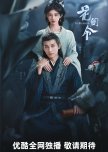
Switched by the witch.
In Blossom or 花间令/Huā Jiān Lìng (The Flower Order) is a mystery romance with fantasy elements. I checked this out because of Liu Xueyi, an under appreciated actor who is just as good an antagonist as he is a protagonist. Despite some flaws and controversy, this sleeper hit won Liu Xueyi high praise for his good looks and compelling acting.Yang Caiwei is a scarred, inauspicious undertaker shunned by citizens of the sinful city of Heyang. She finds herself embroiled in a murder case with the new magistrate Pan Yue, the most handsome gentleman in the capital. As it turns out, before misfortune befell her family, she was engaged to Pan Yue and he seems determined to honor their betrothal. On their wedding day, she is switched by the witch Shangguan Zhi using dark magic. She finds herself in Shangguan Zhi's body right before "Yang Caiwei" is murdered and suspects Pan Yue of doing the deed! Assuming Shangguan Zhi's identity, she investigates her own murder by working for Pan Yue at the yamen in the hope of finding evidence of his complicity. Body swapping is the only fantasy aspect and it is readily accepted without that much disbelief by the characters in this story.
This production drew early criticism because Zheng Hehuizi guest starred as Yang Caiwei for two episodes and impressed viewers with how she interpreted the role. Her Yang Caiwei is a solemn character; a child whose world was shattered overnight and endured nine years of hardship. She finds meaning in following her shifu's footsteps as a coroner, obtaining justice for victims of foul play. This characterization of Yang Caiwei makes sense to me but unfortunately, there was no meeting of the minds in how the role should be portrayed. Although Ju Jingyi delivers an adequate performance, her depiction lacks depth and gravitas. Her Yang Caiwei is literally only Shangguan Zhi; a happy, pampered young lady who never suffered a day in her life. She is so un-serious as a coroner I just scoffed at her autopsies. Still, she didn't quite ruin the show for me as she is so pretty and charismatic I always have a soft spot for her. I just sigh for the opportunity missed because Yang Caiwei is one of the better written female roles and Liu Xueyi is a fantastic actor to be paired up with. She could have impressed enough with a more layered performance to break her out of her usual typecasting but sadly she did not approach this role thoughtfully enough.
While I watched this for the suspense plot, both romances are nicely written. Liu Xueyi and Ju Jingyi look so gorgeous as a couple that their visuals alone deflect many flaws. To me, Pan Yue’s early obsession with Yang Caiwei was not healthy or well founded but I enjoyed how he fell for her against his better instincts thinking she was the detestable Shangguan Zhi. I never faulted Pan Yue for taking so long to figure out she was Yang Caiwei because both actresses failed to show me of they are the same girl. I like how Zhuo Lanjiang is written to be as capable and powerful in his own way as Pan Yue. He is a credible love rival that does not descend into delusional archetypes. But I wasn't that invested in his romance either.
After the big letdown of Youku's big budget Judge Dee's Mystery, this much more modest production satisfied my craving for a good mystery. The cases, beginning with Yang Caiwei's own murder hooked me from the get go. I enjoyed how each case pulls at threads to reveal links initially to the four major clans of Heyang and ultimately a far wider conspiracy that goes back many years. This familiar formula used in many other investigative series is quite well executed. Despite small plot holes, the focus on the human tragedy aspect of these side cases made me either empathize with the victims or at times even the perpetrators. This is something both Judge Dee's Mystery and Mysterious Lotus Casebook failed to do. The main villain is neither too obvious nor revealed too early, which was my biggest gripe with Mysterious Lotus Casebook. This one does well in keeping us guessing right up till the end. However, this is achieved by concealing information from the viewer instead of hiding all the clues in plain sight.
The narrative hiccups in the final arc back at the capital. It seems like a different writer took over. The villain is revealed shortly after they show up onscreen instead of building suspense for a bit. The final villain is not that smart and only gains an upper hand because two hitherto smart characters are thrown under the bus and exercised their free will in unintelligent ways. It always makes me angry to see good characters get undeserved outcomes so I am not happy with how this ends. Good characters were literally wasted just to squeeze some tears from the audience. Instead of ending on a big reveal, it just descends into melodrama. The chilling ending epilogue however is well done but to avoid spoilers I will elaborate on that below. All things considered, this is still an enjoyable watch. I would have rated it 8.0/10 were it not for the ending. My final rating is 7.5/10.0.
ENDING SPOILER COMMENTS
The ending epilogue is a nice chilling way to end regardless of whether Season 2 gets the go ahead. If there is no Season 2, it suggests that #1 is some kind of arch nemesis of Pan Yue, like Moriarty to Holmes who is still out there; that organizations like The Flower Order are not that easy to wipe out. Note there are actually 9 tokens in total in the end scene.
If there is a Season 2, the mastermind is either someone we already met or someone that has not yet appeared onscreen. Recall #2 only shows up in the final arc so this writer does not play fair with the audience. In that case, it is not useful to speculate further. If however, the mastermind is someone we already met, I think it is most likely Shangguan Lan. It is evident from the plain cyan sleeves that it is a man and while the cloth is rich, there is no elaborate embroidery on the sleeve like the nobles and high officials like Pan Yue and Minister Pan wear. The Shangguan family keeps a private army and they have the vast resources and network to be behind this kind of clandestine organization. They also have links to witch doctors and dark magic, which is how Shangguan Zhi swapped bodies with Yang Caiwei. So it would not be surprising that they worship pagan gods like the ram god. I initially ruled out Shangguan Lan due to his age, but he could have inherited the token from his father.
There is also a possibility the mastermind is a woman because the Chinese title is The Flower Order. In that case, it could either be The Empress or Qingdi, who now pretty much controls Heyang after Pan Yue effectively eliminated all her rivals for her.
X
Was this review helpful to you?

You only live twice.
Fan Xian is back!!! There are no words to describe the pure joy I felt after what was for me, a three year wait. I never expected S2 to be as strong as S1 and as much as I enjoyed it, it is not quite at the same level. To begin with, killing a character onscreen is never easy to unwind and their walk back of the S1 cliffhanger was long winded, cumbersome and comically farcical. What saves it is that most audiences are so grateful to see the whole gang, villains and all, back together again they willingly suspend disbelief.The most noticeable difference with S2 is the visible shift in the narrative from plot driven to largely character driven. After narrowly cheating death, an introspective Fan Xian who realizes you only live twice, returns to the capital. During S1, Teng Zijing showed Fan Xian that some things are worth dying to protect. This season explores what those things are for Fan Xian. He reflects upon his mother's ideals and begins to see the injustices that made her want to change the world. The plight of the common people resonates with him as he comes to understand that he is also but a pawn in a high powered chess game. He embraces his mother's legacy with a sense of purpose and a clear vision of what he means to do with it. The most exhilarating moments of this season are not action packed or full of intricate twists but pivotal moments in Fan Xian's character journey. It is less exciting if you are an action junkie but this is the season that reveals who Fan Xian really is and more importantly, who he wants to be.
With the signature Joy of Life verve and wit, important plot points or character motives are conveyed indirectly with humor. As the laughter abates, the manifold implications, often dark and diabolical start to sink in. The most chilling aspect of S2 is Fan Xian's complex, multi-dimensional chess game with the emperor, who is the grandmaster firmly in control of the board and all the chess pieces. It is not even clear that Chen Pingping is really on Fan Xian's side; after his "miscalculation", he seems just as dangerous as friend or foe. It is from such a disadvantaged position that Fan Xian plays to win even though winning could also cost him his head. While the emperor's end game remains murky, he reveals a guarded, almost resentful affection for Fan Xian that has me hopeful and fearful at the same time. Some of the emperor's schemes and motives are too intricate and have to be explained via dialogue, which is something I am not a fan of.
Inasmuch as I quite miss the rounder and carefree Fan Xian, Zhang Ruoyun's lean and mean new look lends a sense of maturity and gravitas to the role. My mouth goes dry at the layer upon layer of divine masculinity that comprise Fan Xian, the man. His scenes with the emperor where they both test and measure each other are mesmerising until the tension is broken by at times offbeat humor that has me yodelling with laughter. Every dysfunctional Li family gathering is a hilarious parody of a feast at Swan Goose Gate (Hongmen banquet/鸿门宴). There are many insanely well acted emperors in c-drama yet Chen Daoming still manages to stand out with his complex, differentiated, infuriating and utterly unpredictable portrayal. Just when I am sure I loathe him, he blindsides me with an unexpectedly moving expression of almost regret. Fan Xian has yet to get the better of this sociopath but at least he still manages to run circles around "Mini Me". The moment he scared the living daylights out of the second prince is one of the highlights of the season.
It is no small feat that they managed to reunite such a large and sought after cast and practically all the roles are well conveyed. Ye Lingér however was obviously abducted by aliens and replaced with a bot. Hopefully Si Lili rescues her offscreen and returns with the real Ye Lingér just in time for S3. I won't deny that I basked in every moment of this reunion of my favorite characters, good and evil. That said, outside of Fan Sizhe, no one really gets to do anything consequential. Many new characters including the first prince, the Beiqi princess and Fan Xian's scholars are introduced with unclear purpose. Everyone is being teed up but the punchline is put on hold until S3. This unbalanced focus on introducing and fleshing out characters and relationships comes at the cost of plot movement. This makes me worry that this leaves too many open plot arcs to be closed in S3. While I wouldn't dare to explicitly wish anyone's bestie villain dead, I think they should have closed at least one of the villain arcs instead of pushing everything into S3.
The character arc of S2 closes triumphantly with Fan Xian reclaiming his power and free will by choosing what family means to him and in doing so, he changes the game. I expect S3 to be once again more plot driven like S1. While I savored S2 and appreciate that they took the time to flesh out the characters and key relationships, there are just too many open plot threads for me to rate this the 9.5 I gave S1. Thus this is a 9.0/10.0 for me for now. If everything comes together well in S3, the series overall will easily be 9.5 or a 10.0.
Was this review helpful to you?

Mother most foul.
I prefer to review c-dramas that are arbitrarily split in two parts to circumvent episode caps only once, after the entire story has been told. In this case, I am making an exception because Part 1 is largely a family drama that focuses on a difficult mother daughter relationship. This Part 1 review will evaluate that aspect of the story and defer a full discussion of the romance to Part 2.Cheng Shaoshang is a grey character - a thorny, defiant, scheming and distrustful Han Dynasty fifteen year old. She is left to fend for herself while in the care of abusive but not smart relatives while her military family is away defending the country. She runs circles around them and grows up to be distrustful, cunning and unrestrained. When her parents return from the battlefront, they are appalled to discover a lovely, wild, uneducated child, shockingly unschooled in the etiquette expected of the young daughter of a newly minted marquis. Her mother, a fearless, decorated general finds in her recalcitrant daughter a greater foe than found on any battlefield. The mother daughter conflict is the guts of Part 1 and drives most of Shaoshang's actions and decisions.
As a fan of grey characters, I like Shaoshang's character design a lot and Zhao Lusi delivers a very empathetic and charismatic portrayal. While there are better actors, what makes Lusi special is she is very, very funny. Even though there is a recognizable pattern to her comedy, her timing and delivery is more refined with each drama. Underneath the humor, she shows us that Shaoshang is a sad person who refuses to weep; adroitly infusing a note of loneliness, false bravado and vulnerability. This makes the character extremely empathetic, to the fault of being overly so. Lusi seems less comfortable articulating Shaoshang's many flaws, which are glossed over hastily and in a muted tone. As a result, Yuanyi's insistence on harshly taming her daughter's "harmless mischief and high spirits" comes across as heartless and misguided. A more balanced depiction of this relationship rather than one where the mother is so unambiguously the villain would be more interesting and realistic.
One of my biggest issues with the character writing is how main characters, especially Shaoshang are elevated by diminishing other characters, particularly her mother. Their forced separation from birth and subsequent alienation and resentment deserves compassion on both sides but is written in a way that consistently only assassinates the mother's character. After suffering through many of their blood boiling disputes, I was pleased to see Shaoshang get some inkling of what her family went through after Hua City. And I thought she won her mother's grudging respect and approval in how she dealt with Lou Yao. So I was just gobsmacked and revolted by how her mother inexplicably smacks her down in front of the entire court. This is all so that Ling Buyi can gallantly come to the rescue by praising her to the skies as the best lady in the capital. Which considering how awful the other ladies in the capital are, is hardly such a great compliment. After the initial cheap thrill, it looks very high handed and coercive on Ling Buyi's part. It also undoes the hard won truce if not tentative mutual understanding between the mother and child. I don't need them to ever see eye to eye or become best friends but it is disappointing to see Shaoshang's nemesis in Part 1 reduced to a two dimensional mother most foul.
What I can praise is how Shaoshang is lifted up by her intelligence, courage, compassion and her ability to do the right thing even at great cost to herself, which we see in both the Hua City arc and Lou Yao arc. Unfortunately in the latter half, Shaoshang is propped up largely by kicking other characters down. I have never seen such a long list of repetitive, nasty and screechy female characters in a drama. They are all cardboard copies of each other - bratty, rude, stupid, arrogant and in love with Ling Buyi. The mothers are all older and uglier versions of their daughters. I don't enjoy watching women doing their worst to each other. Nor do I like that they are repeatedly dressed down by men, even when it is Ling Buyi and it is well deserved. Sure it is very satisfactory in a low way but it is also frustrating and with repetition, boring. It is very disturbing that with few exceptions (Qi Qi and third aunt), the likeable characters in this drama are all men.
Despite a few thrilling knight in shinning armor moments, the romance is only set up in Part 1 with little real development. Shaoshang's main purpose is to gain freedom and escape her mother's eagle eye and she views marriage as the means to that end. None of her suitors are that compelling and their courtship methods are so appalling they are comical. Lou Yao trails after her like a lovesick puppy, willing to wait on her hand and foot without realizing that women don't need to marry doormats or servants. Yuan Shen's retarded strategy seems to be to make her hate him and pray that hate turns into love. But Ling Buyi is the one that just takes the cake. He makes sure her parents, no, the whole kingdom, knows she has seen him nekkid and failing that, makes her an offer she can't refuse. Who ultimately prevails is pretty much a foregone conclusion with the casting of Wu Lei, which is also a bit of a shame. I'd enjoy it more if we are kept guessing for awhile and there is genuine competition among worthy suitors.
We don't get to see enough of Wu Lei or the romance as Part 1 is mostly Shaoshang's family story. However, there is enough romantic fan service that shows Wu Lei's chemistry with Lusi is promising. While Wu Lei looks incredibly hot as the cold and intimidating general Ling Buyi, initially he appears stiff, like he is trying too hard to project gravitas. He improves noticeably later on when he relaxes his face muscles and his character is humanized by his sidekicks Liang Qiuqi and Liang Qiufei or Tweedledee and Tweedledum. Tweedledum is my favorite side character; his vivid facial expressions in each of his interactions with Ling Buyi have me rolling with laughter. Indeed what really livens this drama's slow burn pace is the humor which also brilliantly amplifies character traits. It is a poignant reminder of how funny and ferocious Wu Lei's Fei Liu was. I had long forgotten how good he is at humor. I look forward to seeing more of Ling Buyi's story as well as genuine relationship development between the leads in Part 2.
If I were to rate Part 1 solely on the mother daughter relationship, I would only give this an 8.0. What makes me mad is this had a lot of potential and we really don't get that many good historical mother daughter character stories. Instead the mother is written to have so little redeeming value it just ends up being a giant waste of emotional energy. But I will throw in another 0.5 to make this 8.5 because apart from the first four episodes which were an aberration, I enjoyed the comedic moments immensely. I may have given this a 9.0 without the many nasty, noisy women.
Was this review helpful to you?
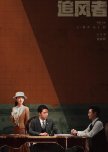
Winning hearts and minds.
Amidst the economic hardship and political upheaval of 1930s Shanghai, War of Faith explores the financial underpinnings of the Communist Party of China's (CPC) eventual military victory over the Kuomintang. This story unfolds from the perspective of Wei Ruolai, a young financial prodigy who becomes entangled in the ideological struggle that defined that era. The narrative deftly avoids lengthy ideological discourse by framing the struggle as largely an economic one. It was a time of economic hardship for the common working class people from the cities to the countryside. While politically aware, most of them were were not conversant in the finer points of the political and ideological debate. Their needs were basic and winning hearts and minds came down to being responsible fiduciaries of their hard earned savings and livelihoods.Shen Tunan is a savvy central banker with grand plans to reform and strengthen the local banks and loosen the grip of foreign banks to unleash China's economic potential. A true believer in the Kuomintang's Three Principles of the People, he is nonetheless a pragmatist is willing to compromise and look the other way in order to achieve his objectives. The evolving mentee-mentor relationship between Shen Tunan and Wei Ruolai is compellingly articulated by Wang Yang and Wang Yibo and bolstered by good chemistry between the actors. Their mutual respect did not waver even as it became evident that their bottom lines diverge. Wang Yibo surprised and delighted me with his portrayal of a quietly clever young man's coming of age. His Wei Ruolai is idealistic but not naïve, can be ruthless but is not cruel and is loyal but not unquestioning.
All three main protagonists in this drama have a shared vision of the kind of future they want for their country but there are deep divisions between them on how to get there. Shen Tunan understands there is rot in the system but is willing to compromise and work within in; to try to fix it. Shen Jinzhen thinks it is not fixable and wants to tear it all down and start over. She is radical to the point of being almost fanatical and shockingly bold and ruthless in how she executes her vision. I have even greater respect for Li Qin, who also elevates her repertoire as an actor in this role. The relationship between the Shen siblings and their painful conflict is a highlight of this drama. They are both so strong willed and their conviction in their opposing beliefs is as strong as their love and respect for each other. The narrative does a fantastic job illustrating that the country is an extension of the family so when the rubber meets the road, they are first loyal to each other. As the newcomer without any particular ideology, Wei Ruolai is caught between them and ultimately in his choice, becomes the de factor arbiter of the better path forward.
The darkest, most complicated, ultimately despicable and yet oddly empathetic character in this drama is Lin Qiaosong, arrestingly portrayed by Zhang Tianyang. Even though he is not the smartest villain, he has great instincts and a healthy though grudging respect for his enemies He is brutal and incredibly hard to kill yet has a moving and tender side for his lover. I haven't enjoyed a villain so much in a long time. The other notable performance in this all round standout cast is newbie actor Lan Xiya's Niu Chunmiao. This smart, audacious and plucky character added some much needed levity to this story and saves the day a few times as well.
I enjoyed this drama quite a bit but I wouldn't really call it a spy drama. It is more of a business story with some ideology and some action mixed in. The writers do a terrific job making the rather dry financial aspects of banking and finance accessible and movingly relate it to how the lives of the common people are disproportionately impacted by malfeasance and corruption in the financial system. Overall a very interesting and somewhat educational slice of life from an era of profound change that I am happy rate 8/10.
Was this review helpful to you?

Everybody lies.
This psychological suspense thriller featuring a female hardcore detective starts out well. Ran Dongdong investigates the death of Xia Bingqing, a young woman with secrets. To figure out what happened to her, Dongdong has to piece together who Bingqing was and why someone wanted her dead. As the list of suspects in this complicated murder case grows, it is clear that everybody lies whether they are doing it consciously or not. The way Dongdong nails down inconsistencies in the various testimonies by unreliable narrators and incisively teases out the truth is riveting.Work and life collide for Dongdong when it is discovered that her husband Mu Dafu crossed paths with the victim and he had twice rented a hotel room at the likely scene of the crime. She explores the complexity of love, marriage, and fidelity in both the work and personal arena and the lines start to blur. She begins to interrogate him like a suspect. In fact, he gets the worst of it because there are no professional restraints at home. Not that he is a paragon of virtue, far from it!! He was always a bit of a narcissist humanities professor that openly indulges in deeply intimate, highly flirtatious but ostensibly intellectual discussions with professional peers and students. She was fine with it until inexplicably, she is not. Likely because they fell out of the idealistic love phase of their relationship or maybe because he stopped telling her about these women that fall for him.
I did not expect to see this suspense plot devolve so deeply into a dark exploration of marriage between a dislikable and messed-up toxic couple. Both Song Jia and Wang Yang deliver mesmeric performances as flawed, complex, egotistical, and ultimately selfish characters. I did not like either of them. In fact, there are no heroes in this story. Other than the poor kid, pretty much everyone is a terrible person. Even the victim is too much of an architect of their own fate and is not empathetic. Neither of the two parallel plotlines is satisfactorily resolved. The whodunit mystery ends up being a howdunit procedural with too many plotholes and a weak, trite, cop-out motive for the murderer. The way the relationship is resolved also leaves unanswered questions although there is closure in the sense that Ran Dongdong and Mu Dafu really deserve each other. May they live tortuously ever after.
I enjoyed this drama up until episode 10 after which it turns into something I had no interest in watching. I can see how it may hold some appeal to people who like difficult relationship stories. My rating of 6.5 is for the very mediocre suspense plot, which is what I came to watch.
Was this review helpful to you?
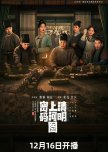
There is something rotten in Kaifeng.
Riverside Code at Qingming Festival/清明上河图密码 is adapted from Ye Wenbiao's popular suspense novel of the same name. One of the highest rated popular novels on Douban, it draws inspiration from Zhang Zeduan's epic 11th century scroll painting Along the River During the Qingming Festival/清明上河图. This panoramic masterpiece meticulously depicts 814 figures, 60 animals, 122 houses, 28 ships, 15 vehicles, over 30 buildings and 8 sedan chairs going about their daily lives along the grand canal. It is an eerily vibrant, intricate and authentic snapshot of Kaifeng (then known as Bianjing) at the peak of its cultural and economic significance; not long before the city was invaded, captured and largely destroyed by the Jurchens in 1127. It is a miracle that this iconic and magnificent record of the city's urban infrastructure, military instalments, industry and commerce and citizens from all walks of life survived. This visually immersive drama virtually restores the sweeping grandeur and prosperity of Kaifeng when it was believed to be the largest city in the ancient world and brings it to life. The drama opens with the mysterious disappearance of the Mei ship sailing under the Rainbow Bridge, which is the centrepiece of the painting.This narrative examines what lies beneath the glittering facade of prosperity and the elated bustle along the Bian River as the citizens of Kaifeng celebrate the Qingming Festival via the eyes of a common family of five. This ties in with the Confucian concept of the family as a microcosm of the state 家国一体; thus the wellbeing of the family is intricately linked with the success of the state. For fifteen years, Zhao Buyou languished as a lowly assistant scribe at Dàlǐsì, the Court of Judicial Review. Even though he doesn't have everything, he is content; happily married to Wen Yue, a filial son to his eccentric father Zhao Li and a good elder brother to his much younger siblings Mo'er and Ban'er. Wen Yue however thinks they need a bigger house so she makes umbrellas to supplement their income. Their world fractures when Buyou is unfairly dismissed from Dàlǐsì while Wen Yue is extorted and harassed by a corrupt official. Pushed into a corner, they discover each other’s hidden secrets and race to protect each other and their family. Soon the entire family uses their special talents to assist Gu Zhen and Wan Fu of the Kaifeng Court solve a series of mysterious cases beginning with the Mei ship case. As the cases unfold, it becomes obvious that something is rotten in Kaifeng, and his name is Zou Mian.
The design of the overarching plot is fresh and interesting; the main villain Zou Mian is so powerful he appears to be above the law and his identity is known from the get go. But the true antagonist hides in plain sight and uses ruthless means to expose Zou Mian's corruption and misdeeds, including threatening the Zhao family. All of the cases are linked to the overarching plot, which is well designed and ties everything together in a satisfying way. The cases are very dark and disturbing and some of the antagonists are unnecessarily depraved and cruel. A unifying theme is that good people can become radicalised and driven to do terrible, desperate and extreme things when they lose faith in a system that fails them repeatedly. While the cases start out well, possibly because of how daringly they push the boundaries in terms of justifying vigilante justice, the conclusions seem to suffer from heavy cuts that leave logic gaps and loose ends. There is some level of just too much going on with the Zhao family drama unfolding alongside the cases. While I enjoyed their family dynamics and learning their backstories, these scenes could have been tightened. In particular Wen Yue going solo was based on shaky logic and her mid-life crisis was not well articulated and detracted from the cases at hand. I always get excited to see c-dramas attempt dark comedy but in this case, while there were some really funny moments, half the time it just didn't land. Overall, for something adapted from such a highly regarded novel, the screenplay does not do justice to the high production values, the exquisite set and the stellar cast.
As for the cast, it is a veteran dream team. I couldn't ask for a better lineup of favorite actors who deliver commanding performances in supporting roles notably Li Naiwen's disingenuous Dilun, Zhang Xinyu's wicked Qiniang and Hai Yitian's slightly unhinged Xiao Yishui. As expected, Zhang Songwen delivers an empathetic and nuanced performance as a flawed, miserable and oppressed character who just sucks it up while his talent is ignored until his harmonious family is threatened. He is more of a coward than a hero and his motives are selfish but relatable. I thoroughly enjoyed his humorous banter with Gu Zhen and Wan Fu and but was shocked by how cynically and ruthlessly they navigate a system that is so broken from within to find their own brand of justice. While Bai Baihe delivers a few exceptional moments as Wen Yue, she doesn't consistently convey the complexity of the role and the inner conflicts that Wen Yue struggled with. The weakest link by far however is Zhang Yao's Mo'er. This is an important role that is meant to illustrate the poisoning of the well. Unfortunately this young actor who struck me as promising years ago in Love in Between, was not ready for this role. He failed to convincingly portray how Mo'er's sorrow, disillusionment and budding resentment made him susceptible to manipulation. This made his darkening from an idealistic young scholar who wanted to reform the system from within seem abrupt and out of character. After all the build-up, I was also surprised by what a lame, wimp Zou Mian turned out to be. There were many fantastic wild, wicked and intimidating villains in this drama but sadly, the "Big Boss" did not live up to his reputation.
Even though this drama ends satisfyingly shortly after the plot climaxes with the reveal of a well-acted and well-hidden mastermind, Zou Mian's take down was anti-climactic. After all the vigilante justice, it makes sense for rule of law and procedural justice to win the day. However, I would have better enjoyed a more exciting denouement and preferably one that does not bypass the question of whether the ends justify the means. As much as I appreciate the meticulous attention to historical detail and the high production values, this drama falters enough in the writing and execution that I can't rate it better than 8.5/10.0. It is still a riveting suspense drama that is entertaining and engaging enough that it deserves another season, hopefully with a better writing team.
Was this review helpful to you?


 67
67 280
280 8
8 2
2 6
6 2
2 2
2 1
1 1
1 6
6 1
1 1
1 1
1 2
2 2
2 2
2 4
4
















